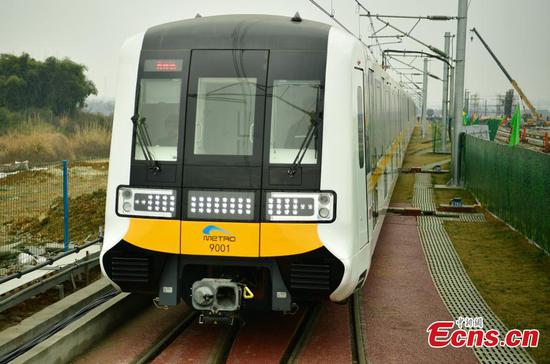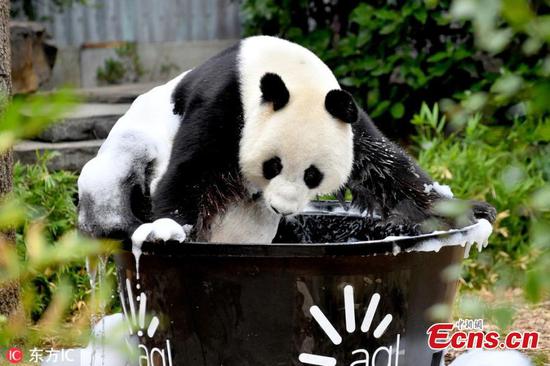Policymakers strive to tackle aging problem
China made big progress in opening the country's elderly care market to overseas investors on Tuesday, allowing foreign capital to invest in the sector while enjoying equivalent access to preferential policies, as the country scrambles to tackle its aging problem.
The National Development and Reform Commission, the nation's top economic planner, and other 17 government departments on Tuesday issued a plan to fully open the domestic elderly care market. The goal is to establish a comprehensive elderly care service system by 2022, with the family model as a basis, community as support and elderly care businesses as a supplement.
According to the Office of the National Working Commission on Aging, the segment of the population aged 60 or above reached 241 million in 2017, accounting for 17.3 percent of the total. The number was larger than the combined populations of Russia and the United Kingdom.
The government's resolution to respond to the aging problem and the domestic undersupply of elderly care services prompted the country to fully open the market to international investors, which will stimulate its middle- to high-end segment, intensify industry competition and promote a regional balance of elderly care services, analysts said Tuesday.
"Middle- and low-end elderly care institutions in China are quite pervasive but the high-end segment is rare with only 0.53 percent of the market. The government's move to fully open the market will push the development of the elderly care industry in a market- and system-oriented direction," Qin Jing, head of the investment research team of Hejun Management Consulting Co, Beijing-based elderly care consulting company, told the Global Times.
According to Qin, foreign companies including Japan's Medical Care Service Company and the UK's Care Visions have shown great interest in establishing elderly care services in China and some have actually done so.
"However, the elderly care resources are not equally allocated in China - major cities such as Beijing and Shanghai and other cities have the best elderly care institutions. Incoming foreign investors could consider second-tier cities to promote regional balance," she added.
According to the Ministry of Civil Affairs, the number of registered elderly care institutions in China reached 28,000 as of September 2017, and 12,500 of those were private institutions, Beijing Business Today reported earlier in February.
"This number is far below what's needed to care for a growing number of Chinese elderly people. It shows we have a problem in the supply side," said Chen Fengying, a research fellow at the China Institutes of Contemporary International Relations."As the government is opening up the services industry, foreign companies could introduce their well-established management and operational experience to China, while investing in the country's elderly care industry."
Chen added that support policies from the government, such as those governing taxes, resources and land, could be provided to foreign investors so that they could make a profit and stay in China to help develop the country's elderly care industry.


















































